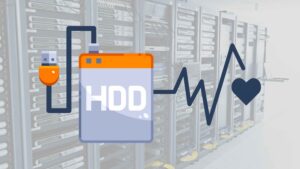

SMART (Self-Monitoring, Analysis and Reporting Technology) is a feature built into most hard drives that allows the drive to monitor its own health and report any errors or issues that it detects. SMARTmontools is a free and open-source software utility that can be used to read and interpret SMART data from hard drives.
Installation
To install smartmontools on Debian/Ubuntu, use the following command:
apt update && apt install smartmontoolsTo install smartmontools on CentOS, use the following command:
yum install smartmontoolsChecking Disk Label
Before using smartmontools, you need to determine the label of your disk. To do this, use the following command:
fdisk -lThe output of this command will show you a list of all connected drives and their labels. For example, the output might look like this:
Disk /dev/hda: 160.0 GB, 160041885696 bytes
255 heads, 63 sectors/track, 19457 cylinders
Units = cylinders of 16065 * 512 = 8225280 bytes
Device Boot Start End Blocks Id System
/dev/sda1 * 1 19269 154778211 83 Linux
/dev/sda2 19270 19457 1510110 5 Extended
/dev/sda5 19270 19457 1510078+ 82 Linux swap / Solaris
In this example, the disk label is /dev/hda.
Checking Disk Health
Once you know the label of your disk, you can use smartmontools to check its health. To do this, use the following command:
smartctl -a /dev/hdaThe output of this command will show you a detailed report of your disk’s health. The following are some of the important values to look for:
- Reallocated_Sector_Count: This value should be 0. If it is not, it means that the disk has had to reallocate sectors to new locations on the disk. This is a sign that the disk is failing.
- Current_Pending_Sector: This value should also be 0. If it is not, it means that there are sectors on the disk that are pending reallocation. This is another sign that the disk is failing.
- Offline_Uncorrectable: This value should also be 0. If it is not, it means that there are sectors on the disk that have uncorrectable errors. This is a sign that the disk is failing.
- UDMA_CRC_Count: This value should be low (less than 100). If it is high, it means that there are problems with the data cable connecting the disk to the motherboard.
Conclusion
If you are concerned about the health of your hard drive, you can use smartmontools to check its health. SMARTmontools is a powerful tool that can help you to identify and troubleshoot hard drive problems early on.
